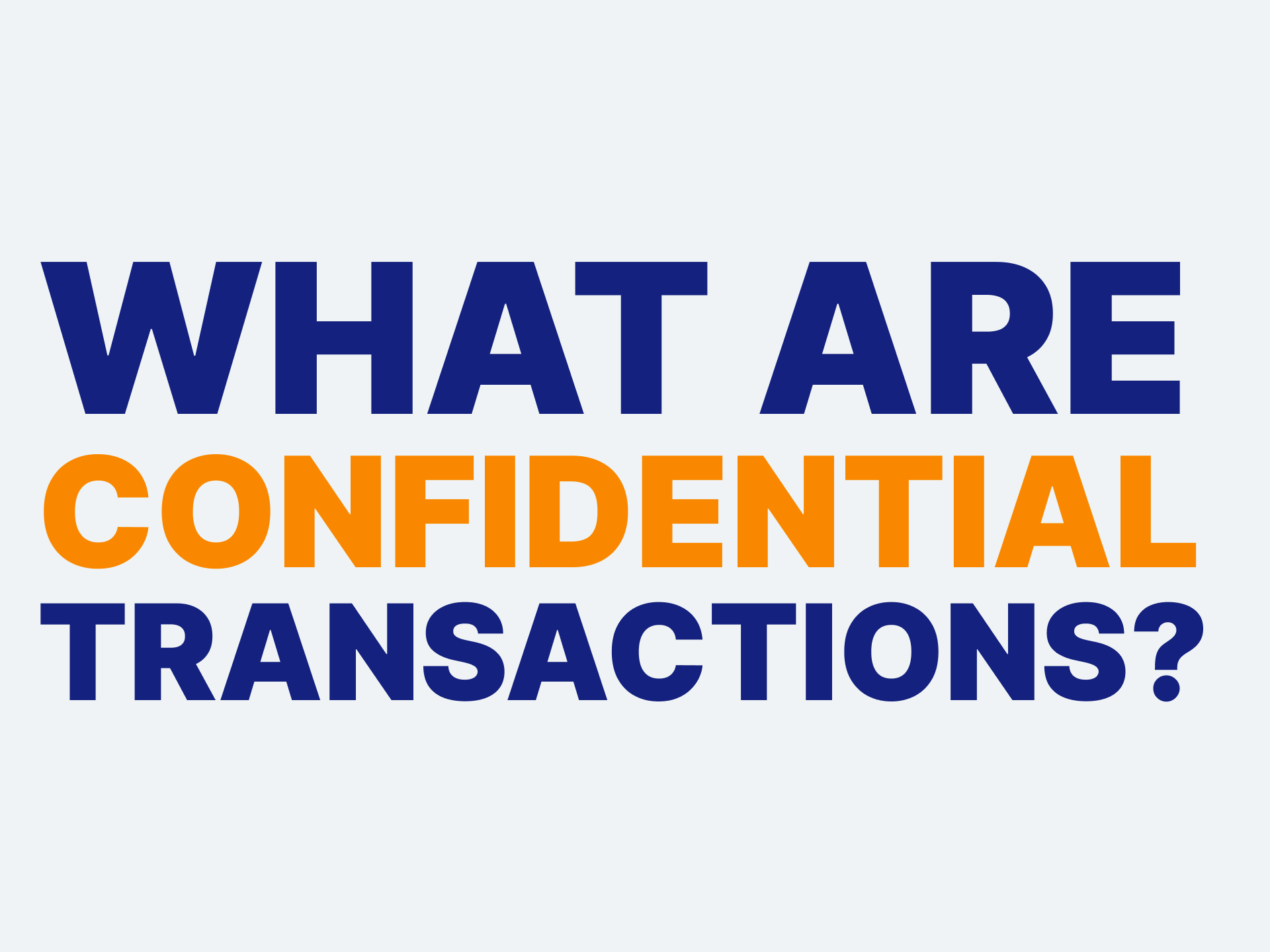The Bitcoin blockchain has been designed to be transparent. Anyone can easily view every single transaction that has ever been processed and the associated wallet addresses on a public block explorer. While there is pseudonymity (as only alphanumerical wallet addresses can be seen), the transparent nature of the blockchain creates a lack of financial privacy, which could limit the mass adoption of bitcoin.
As a result, various developments were made to help boost Bitcoin’s privacy. One of the most promising Bitcoin privacy solutions currently in development is Confidential Transactions (CT).
Read on to learn what Confidential Transactions are, how they work, and why they could be so beneficial for Bitcoin.
Confidential Transactions Explained

Confidential Transactions (CT) were first brought up by Adam Back, Blockstream’s CEO back in 2013. Gregory Maxwell, a Bitcoin developer, later expounded on Confidential Transactions while outlining the problems faced by Bitcoin and providing CT as a solution.
He defined Confidential Transactions as a cryptographic tool that would boost the security and privacy of Bitcoin while helping shield the amounts transferred from the wider network but only making them visible to the transacting parties (and those they choose).
This could be done via the use of Borromean ring signatures and Pedersen commitment schemes without interfering with the blockchain’s ability to verify and validate that all blockchain entries make sense.
Simply put, Confidential Transactions would permit users to carry out bitcoin transactions that are completely verified by the Bitcoin blockchain without publicly displaying the transaction amounts.
Why are Confidential Transactions Important for Bitcoin?
One of the key challenges of Bitcoin is a lack of fungibility. Fungibility is the ability of a good or asset to be readily replaced by another similar item.
In the case of Bitcoin, inadequate privacy leads to the loss of fungibility. While Bitcoin is – for the most part – a fungible digital currency, the reality is that there are instances where 1 BTC is not 1 BTC.
For example, “virgin coins” – freshly mined units of bitcoin – are often sold at a premium because they have no transaction history. Conversely, “tainted coins” that have been used in criminal transactions can become blacklisted and thus difficult to sell, which is why they often sell at a discount on the dark web.
While these two scenarios are not the norm, they highlight Bitcoin’s lack of fungibility due to a missing privacy layer.
Additionally, inadequate financial privacy could also have serious privacy and security implications for both personal and commercial transactions.
Confidential Transactions can help improve Bitcoin’s privacy, thus helping it on its path to becoming sound money for the world.
Could the Implementation of Confidential Transactions Positively Affect the Price of Bitcoin?
The simple answer is yes, probably.
While it’s not yet certain when (or if) Confidential Transactions will be implemented on the Bitcoin network, the implementation of this privacy-preserving technology could have a positive effect on the price of bitcoin.
A privacy layer that allows bitcoin transactions to remain anonymous could help the digital currency to become sound money as it would then become fully fungible and could be used in commercial transactions in a more secure and private manner, which could further boost adoption.
To start investing in bitcoin, download the Relai app from the Google Play Store or Apple App Store today.






